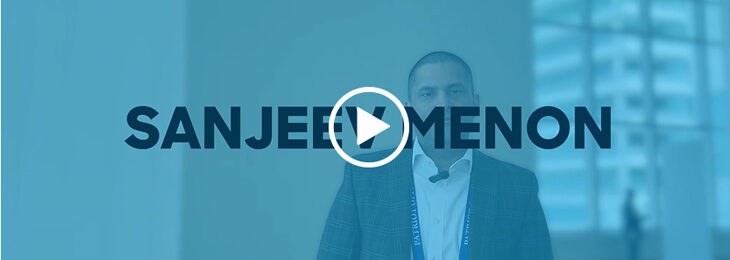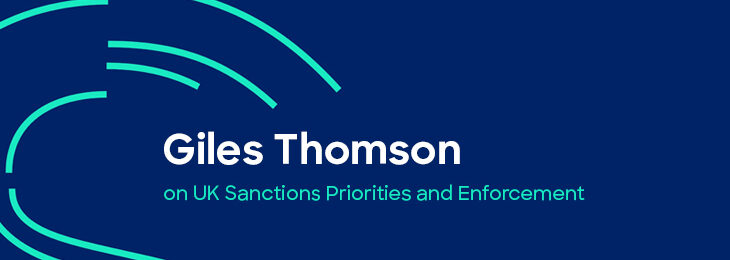
The anti-financial crime (AFC) system in a bank is always a chess game in which several compliance officers play against thousands of international criminals. However, the rules in this game are constantly changing, regulations are often delayed, and the rapid development of modern technologies always gives criminals new opportunities. If compliance uses only legal norms, then the bank uncontrollably assumes financial crime risks and will face significant problems in the future. At the same time, modern compliance efficiency is also changing, and it includes the ability to recognize criminal risks as the elimination of formal administrative barriers for legitimate clients. That is why in 2024, compliance becomes an independent competitive advantage in banking, and the key to efficiency in this process is the accuracy of the AFC methodology.
A bank’s AFC system is closely connected with the economic and legal system of the state in which the bank operates; therefore, despite global trends, banks in different countries will have different risks. At the same time, criminals in all countries choose their AFC schemes based on safety and cost criteria. Sometimes, the cheapest way is to bribe a compliance officer, client manager or security officer. If criminals manage to combine all three of these elements, the bank becomes critically vulnerable to financial crime risks. Therefore, any bank’s AFC system in 2024 should first be protected from internal fraud. Complex and expensive schemes are used only if cheaper and simpler options are unavailable. Banks should take this into account when allocating compliance resources as part of a risk-based approach.
Many modern international crime trends have emerged before or during the pandemic and are evolving, while others are just emerging in response to changes in global geopolitics. In 2024, new trends emerge as criminals seek new ways to exploit vulnerabilities in banks’ AFC systems. This article will take a closer look at this year’s most significant financial crime trends and the methodology of the AFC system in banking.
The drug market has traditionally accounted for a significant portion of international crime revenues and financial crime schemes related to drugs remain relevant for banks in 2024. The annual volume of the world drug market could exceed $1 trillion, which is 30% of the total income of transnational crime.1 Drug money is traditionally a high risk for banks, but detection methodology must be properly understood. A bank’s AFC system should separate drug risks at the micro and macro levels.
Drugs at a Micro Level
At the micro level, we are talking about the street sale of drugs, which is quite easy to identify. The street drug market is almost always cash. It is important to note that some of the money that street drug dealers receive is spent on their current consumption (buying goods and services for cash) and will never enter the banking system. The risks for banks are money used to launder or buy a new batch of drugs, so these are always large sums formed by a constant flow of cash. Businesses with a large cash flow (grocery stores, cafés, markets) and entertainment companies (clubs, bars, casinos) are traditionally the high-risk zone of such operations. In a bank’s AFC system, it is important to analyze that the structure of income and expenses of such companies corresponds to established market practices.
A new risk in 2024 for banks’ AFC systems is the lack of cash flow from service companies. Cash is not only traditionally used in drug criminal schemes but also often in the business models of real companies. Companies may use cash to pay employee salaries or owners’ profits, which can help these companies evade taxes because these cash payments are not declared. Companies may also use cash for bribes or sell cash as a commodity to other companies. Such companies buy unaccounted cash from businesses with a large cash flow; therefore, the bank’s AFC system should detect a non-cash incoming payment to the client’s account from a company from another field. Another variation of this scheme may be a situation where the cash customer pays various expenses (rent, tax, purchase of goods, etc.) instead of the cash seller. Thus, the lack of cash flows from service companies should also be considered a high risk in the bank’s AFC system in 2024 since the funds received can be used for criminal purposes. For such clients, compliance should request information about the number of staff and salary procedures, payment of taxes, rent and other obligatory payments, as well as the existence of obligations or claims against third companies.
Drugs at the Macro Level
At the macro level, the drug market consists of large transnational payments and international money laundering schemes. In addition to commonly known risks, such as money mules, a host of typologies are emerging that banks need to understand and assess for 2024. For example, Tether, which issues USDT stablecoins (the largest stablecoin in the world by market capitalization), processed an $18.2 trillion valuation in 2022, outperforming Visa ($14.1 trillion) and Mastercard ($7.7 trillion).2 In 2024, Tether not only ranks third among more than 10,000 digital currencies by market value but also leads in daily trading volume with $23 billion.3
At the same time, according to a new U.N. report,4 cryptocurrency has emerged as a critical piece of the underground banking and money laundering infrastructure in East and Southeast Asia, fueling transnational organized crime in the region. The U.N. also notes that Tether’s USDT is growing in popularity in the underground banking and money laundering infrastructure. The attractiveness of the crypto market for criminals is a consequence of weak compliance standards. The Bitzlato crypto exchange could exist in 2018-2022 only because it attracted customers with formal know your customer (KYC) procedures and the possibility of criminal money laundering. An internal spreadsheet saved in Bitzlato’s shared management folder encapsulated the company’s view of itself: “Positives: No KYC… Negatives: Dirty money…”5
It is also important to note the great potential of cryptocurrencies to circumvent U.S. and European Union sanctions restrictions. For instance, in 2023 Russia took first place on the Bybit (20%), Huobi (14%), Deribit (11%) and MEXC (11%) exchanges as well as third place on the Bitget exchange (10%).6 In addition, in January 2023, Russian citizen Anatoly Legkodymov, the founder of the Bitzlato crypto exchange, was arrested in Miami on charges of financial crime and money laundering. According to the U.S. Department of Justice (DOJ), Hydra drug market users exchanged more than $700 million in cryptocurrency with Bitzlato, either directly or through intermediaries. Bitzlato also received more than $15 million in ransomware proceeds.7 As a result, the Financial Crimes Enforcement Network has officially identified Bitzlato as a “primary money laundering concern” in connection with Russian illicit finance.8
The most exposed risk of the huge criminal crypto market, which can exceed $70 billion and increase by $10 billion to $20 billion annually,9 is bank payments for the initial purchase of cryptocurrency or the withdrawal of money from the crypto market to fiat money. Criminal money can be identified most easily at these stages. For example, the DOJ reported10 that Wan Kwok was arrested for orchestrating a fraud conspiracy worth over $1 billion. The criminal charge is related to the scam involving the Himalaya crypto exchange, which created the Himalaya Dollar stablecoin and the Himalaya Coin utility token. In addition, the U.S. government seized approximately $634 million from 21 different bank accounts. To make such payments, criminals use bank cards and accounts that are registered to fake individuals (“drops”). You can identify signs of such payments using the following IT settings:
- The number of individuals: Counterparties of your client exceed 10 per day or 50 per month, and the number of non-cash payments exceeds 30 per day
- Lack of cash withdrawal and payments to companies (for utilities or communication services, grocery stores, cafés) in the cost structure
- High speed of payments: When no more than five minutes pass between the crediting and debiting of funds
- Minimum account balance at the end of the day does not exceed 10% of the average daily volume of transactions on the account
- The media access control (MAC) address or fingerprint of the client’s device matches the identity of other clients
- The client avoids personal contact with the bank and interacts exclusively remotely
A bank’s AFC system should reflect the possibility of opening accounts for fake individuals in two ways. The easiest and cheapest way for criminals is to open an account when the client is acting under the control of another person. The bank’s AFC system cannot identify this situation analytically. Therefore, an employee with AFC knowledge is essential for a correct crime risk assessment. An alternative way involves the use of modern technologies. According to KPMG research, the fastest-growing financial crime in the U.S.―synthetic identity fraud―costs banks an incredible $6 billion. In order to commit the crime, fraudsters combine real and false information to create a synthetic identity, or a “Frankenstein ID.”11 In 2023, criminals began using artificial intelligence (AI) to spoof voice messages to communicate with banks over the phone. To create these spoofed voices, the AI uses previously posted voice messages or a person’s videos on social networks. This trend will further develop in 2024, so compliance should prepare banks’ AFC systems for such new risks.
According to an Allianz Research report, 2024 is set to be one of significant political upheaval and economic instability because of the elections of the heads and governments of countries representing 60% of the global GDP.12 Elections not only determine the vector of the country’s further development but also traditionally reveal accounts of corruption in the previous government. For example, Nigeria’s former central bank governor, Godwin Emefiele, has been in prison since June 2023. An investigation revealed that Emefiele opened 593 foreign accounts in the U.S., China and the U.K.13 The investigation found 543 million pounds ($690.74 million) hidden in the U.K. alone.14 Thus, the risks of relations with politically exposed persons for banks in 2024 will be very significant. Therefore, compliance must carry out additional work to update identification data and obtain documents confirming the legal origin of funds.15
Conclusion
The banking system is going through a difficult period in 2024. “A lost decade could be in the making for the global economy,” said Indermit Gill, the World Bank’s chief economist.16 Despite the growth of economic crime and significant state control, banks are focused on reducing overall costs and current liquidity. Dealing with the new economic reality is possible only for banks that will become more efficient with fewer resources. That is why banks need as highly qualified employees as possible to support forward-looking AFC systems.
Mikhail Karataev, CAMS, independent compliance expert, Hollywood, FL, USA, karataevnew@gmail.com
- The International Narcotics Control Board Report 2021 (E/INCB/2021/1), United Nations, https://www.incb.org/documents/Publications/AnnualReports/AR2021/Annual_Report/E_INCB_2021_1_eng.pdf
- @Tether_to, “2022 Settlement Volume,” X, January 14, 2023, https://twitter.com/Tether_to/status/1614235064543363074
- Jamie Redman, “Tether’s Market Cap Soars by Over 35% to $90 Billion in 2023, Nearing Top 100 Global Assets,” Bitcoin.com, December 7, 2023, https://news.bitcoin.com/tethers-market-cap-soars-by-over-35-to-90-billion-in-2023-nearing-top-100-global-assets/
- “Casinos, Money Laundering, Underground Banking, and Transnational Organized Crime in East and Southeast Asia: A Hidden and Accelerating Threat,” United Nations Office on Drugs and Crime, January 2024, https://www.unodc.org/
roseap/uploads/documents/Publications/2024/Casino_Underground_Banking_Report_2024.pdf - “Founder and Majority Owner of Bitzlato, a Cryptocurrency Exchange, Charged with Unlicensed Money Transmitting,” United States Attorney’s Office, January 18, 2023, https://www.justice.gov/usao-edny/pr/founder-and-majority-owner-bitzlato-cryptocurrency-exchange-charged-unlicensed-money
- “CEX Data in Nov: Spot Trading Volume Surges Over 60%,” Wu Blockchain, December 11, 2023, https://wublock.substack.
com/p/cex-data-in-nov-spot-trading-volume - “Founder and Majority Owner of Bitzlato, a Cryptocurrency Exchange, Charged with Unlicensed Money Transmitting,” United States Attorney’s Office, January 18, 2023, https://www.justice.gov/usao-edny/pr/founder-and-majority-owner-bitzlato-cryptocurrency-exchange-charged-unlicensed-money
- “Remarks by Deputy Secretary of the Treasury Wally Adeyemo on Action Against Russian Illicit Finance,” U.S. Department of the Treasury, January 18, 2023, https://home.treasury.gov/news/press-releases/jy1193
- “Crypto Money Laundering: Four Exchange Deposit Addresses Received Over $1 Billion in Illicit Funds in 2022,” Chainalysis, January 26, 2023, https://blog.chainalysis.com/reports/crypto-money-laundering-2022/
- “Ho Wan Kwok, A/K/A ‘Miles Guo,’ Arrested For Orchestrating Over $1 Billion Dollar Fraud Conspiracy,” United States Attorney’s Office, March 15, 2023, https://www.justice.gov/usao-sdny/pr/ho-wan-kwok-aka-miles-guo-arrested-orchestrating-over-1-billion-dollar-fraud-conspiracy
- “Synthetic identity fraud: A $6 billion problem,” KPMG, https://kpmg.com/us/en/articles/2022/synthetic-identity-fraud.html
- “2024: A year of political turmoil and economic uncertainty,” Allianz, December 15, 2023, https://www.allianz.com/en/
press/news/studies/231215-allianz-2024-a-year-of-political-turmoil-and-economic-uncertainty.html - Ruth Olurounbi, “Probe Says Ex Nigeria Central Banker Opened 593 Foreign Accounts,” Bloomberg, December 22, 2023, https://www.bloomberg.com/news/articles/2023-12-22/probe-says-ex-nigeria-central-banker-opened-593-foreign-accounts
- Jimisayo Opanuga, “How Emefiele, others stashed billions in 593 accounts in US, UK, China – Report,” The Guardian, December 22, 2023, https://guardian.ng/news/how-emefiele-others-stashed-billions-in-593-accounts-in-us-uk-china-report/
- Please view the Financial Action Task Force’s Recommendations 12 and 22 for information on updating identification data and obtain documents: “FATF Guidance: Politically Exposed Persons (Recommendations 12 and 22),” Financial Action Task Force, https://www.fatf-gafi.org/en/publications/Fatfrecommendations/Peps-r12-r22.html
- “Global Economy’s ‘Speed Limit’ Set to Fall to Three-Decade Low,” The World Bank, March 27, 2023, https://www.worldbank.org/en/news/press-release/2023/03/27/global-economy-s-speed-limit-set-to-fall-to-three-decade-low










